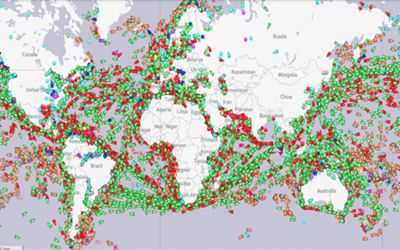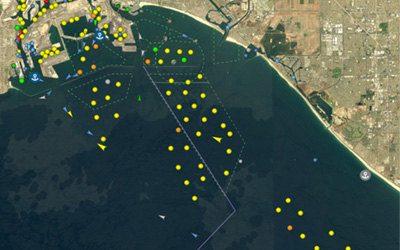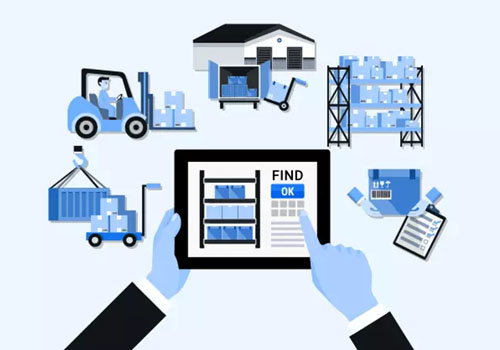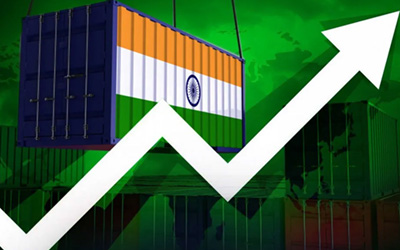Port Congestion Chalenges & Headaches
Introduction
Port congestion is one of the most pressing challenges for freight forwarders worldwide. It refers to the buildup of cargo at ports due to delays in loading, unloading, and transportation, which can lead to severe supply chain disruptions. As global trade volumes continue to rise, addressing port congestion is critical for maintaining smooth and efficient freight operations.
Causes of Port Congestion
 Increased Global Trade Volumes
Increased Global Trade Volumes
With e-commerce and international trade growing rapidly, ports struggle to keep up with the rising demand. The higher the volume of goods moving through ports, the greater the likelihood of congestion.
Labor Shortages and Strikes
Ports rely on skilled labor for loading and unloading cargo. Strikes, labor disputes, and worker shortages can significantly slow down port operations, creating backlogs that take weeks or months to clear.
Weather Disruptions
Extreme weather conditions such as hurricanes, typhoons, and heavy snowfall can halt port operations, leading to severe congestion. Ports in regions prone to adverse weather often experience longer delays due to limited operational windows.
Lack of Port Infrastructure
Some ports lack the infrastructure to handle modern mega-ships, causing inefficiencies in cargo handling. A shortage of berths, cranes, and storage facilities can contribute to congestion.
Equipment Shortages
Shortages of essential equipment such as containers, chassis, and trucks can slow cargo movement. A lack of available shipping containers, for instance, can result in extended wait times for loading and unloading.
Impacts of Port Congestion
 Delays in Shipping Schedules
Delays in Shipping Schedules
Port congestion can cause significant shipping delays, impacting businesses that rely on just-in-time (JIT) supply chains.
Increased Shipping Costs
Shipping companies often impose congestion surcharges, driving up overall costs for freight forwarders and their clients.
Bottlenecks in Supply Chains
When one link in the supply chain experiences congestion, it creates a domino effect that impacts transportation, warehousing, and inventory management.
Higher Warehousing Expenses
Freight forwarders and importers must store goods longer than expected due to delays, increasing warehousing and demurrage costs.
Case Studies of Major Congestion Events
COVID-19 Pandemic Impact
The COVID-19 pandemic caused unprecedented port congestion due to lockdowns, labor shortages, and sudden shifts in consumer demand.
Ever Given Suez Canal Blockage
In 2021, the Ever Given container ship blocked the Suez Canal for nearly a week, disrupting global trade and exacerbating port congestion.
US West Coast Port Backlogs
Major ports such as Los Angeles and Long Beach have experienced severe congestion due to labor disputes, trucker shortages, and increased cargo volumes.
Singapore and Northern Europe
Despite increased vessel capacity and falling spot rates, congestion is intensifying due to persistent labor strikes, terminal saturation, erratic vessel schedules, and rising security threats.
Strategies to Mitigate Port Congestion
 Advanced Supply Chain Planning
Advanced Supply Chain Planning
Freight forwarders can reduce congestion risks by planning alternative routes and scheduling shipments during off-peak seasons
Alternative Transport Routes
Utilising rail, inland waterways, and regional ports can help alleviate congestion at major seaports.
Port Automation and Digitisation
Automation technologies such as AI-powered cranes and autonomous vehicles can speed up cargo handling and reduce human error.
Strategic Warehousing Solutions
Freight forwarders can use strategically located warehouses to store goods closer to their final destinations, reducing reliance on congested ports.
Government & Policy Interventions
Investment in Port Infrastructure
Governments worldwide are investing in port expansions and modernisation to accommodate larger cargo volumes. Introducing automonous docking vehicles.
Regulations on Container Movement
Policies such as restricting empty container storage time and implementing efficient cargo clearance procedures can help reduce congestion.
Conclusion
Port congestion remains a significant challenge for freight forwarders, impacting global trade efficiency.
However, through strategic planning, technological advancements, and policy reforms, the industry can mitigate congestion-related disruptions.
As supply chains continue evolving, adopting smart logistics solutions will be crucial for maintaining smooth cargo movement.
FAQ
What are the main causes of port congestion?
Port congestion is mainly caused by high cargo volumes, labor shortages, poor infrastructure, and equipment unavailability.
How does port congestion affect freight forwarders?
Freight forwarders face increased costs, shipment delays, and supply chain disruptions due to congestion.
Can technology solve port congestion problems?
Yes, technologies such as AI, blockchain, and IoT improve efficiency and reduce delays in port operations.
What are alternative solutions for freight forwarders?
Alternative solutions include using regional ports, shifting to rail transport, and adopting digital supply chain management tools.
How can businesses prepare for congestion disruptions?
Businesses should maintain buffer stock, diversify shipping routes, and invest in technology for real-time cargo tracking.
Which ports experience the worst congestion?
Some of the most congested ports include Los Angeles, Long Beach, Shanghai, and Rotterdam due to high cargo volumes and operational inefficiencies. British ports association keep up to date with global congestion.
SARR Logistics UK
With a legacy built on trust, backed by extensive experience, a global network, and a customer centric approach, SARR Logistics UK emerges as the ultimate partner for all your supply chain mapping needs. We are in touch with the latest cloud based systems to keep us well informed of any up and comng delays.
If you would like to know more reach out to us today and experience a seamless, efficient, and dependable shipping solution tailored to elevate your business. For further inquiries and to explore how SARR Logistics UK can help you save money contact our team. We are always happy to help.![]()



 Increased Global Trade Volumes
Increased Global Trade Volumes Delays in Shipping Schedules
Delays in Shipping Schedules Advanced Supply Chain Planning
Advanced Supply Chain Planning





